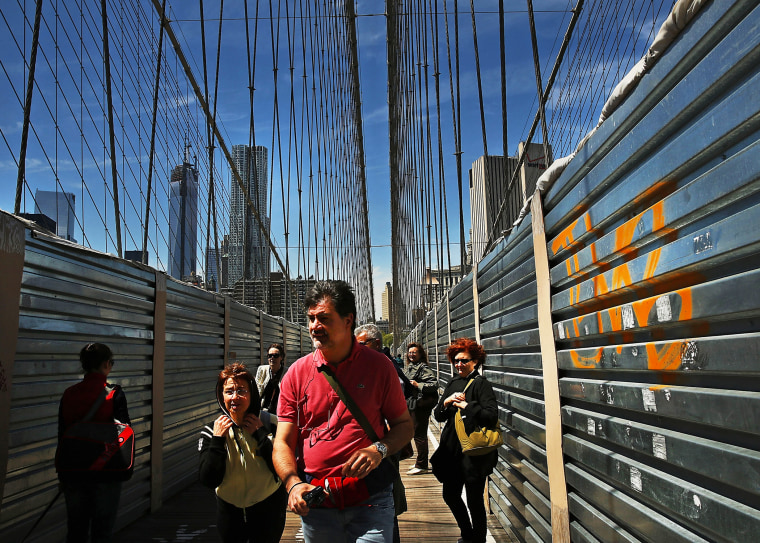Could there be a bipartisan truce on infrastructure?
Just a week after the shutdown ended, House Republicans who were blasting Democrats on spending overwhelmingly passed an infrastructure bill to repair the country's waterways, at the cost of an estimated $8.2 billion.
Now President Obama has re-upped his $50 billion plan to invest in the country's aging ports, bridges, and power lines. Though a plan of such magnitude is unlikely to pass any time soon, infrastructure projects could become a priority in the current 2014 budget talks.
"We should be building, not tearing things down," Obama said in New Orleans on Friday, criticizing the recent government shutdown for interfering with an economy that is finally showing some signs of life. "These self-inflicted wounds don't have to happen, we shouldn't be endangering ourselves--we should be investing."
The president said he was encouraged by the new October jobs report, showing that the country added 204,000 jobs last month in spite of the government shutdown last month—a figure that was significantly higher than expected. But he warned that GDP growth for the quarter "could be down because of what happened in Washington."
Even discounting the impact of furloughed federal workers, many of whom were classified as "unemployed," the total number of employed Americans dropped last month by more than 510,000, according to Betsey Stevenson, a member of the president's Council of Economic Advisers. And more people have given up looking for work entirely.
Obama stressed the need to make investments to bolster growth, reviving the plan he proposed earlier this year to close tax loopholes to pay for infrastructure spending.
"We're relying on old stuff. We shouldn't just have old stuff—we should have some new stuff," the president said, citing the need for a modernized air traffic control system, ports, power grids, and bridges. "The longer we delay, the more we'll pay—the sooner we take care of business, the better," he added, listing a farm bill and immigration reform as other priorities.
He suggested that infrastructure investments could be part of the current budget negotiations, paired with tax loophole closures. The former is likely to be one of Congress's priorities in the 2014 budget: over the summer, House Republicans couldn't bring themselves to pass their austere cuts to transportation and housing, revealing just how much bipartisan support such programs have.
Republicans continue to insist, however, that any tax hikes are a non-starter, and they rejected Obama's infrastructure plan over the summer on those grounds. "It’s just a further-left version of a widely panned plan he already proposed two years ago – this time, with extra goodies for tax-and-spend liberals," Senate Minority Leader Mitch McConnell said at the time. And budget negotiators are having a hard enough time just reversing the sequestration cuts, much less big new spending initiatives.
But there have been signs that Republicans will creep back toward the center on the issue. The deal that ended the shutdown included $2.9 billion in funding—without any offsets—for a dam project on the Kentucky border, benefitting McConnell's home state. And this week, GOP candidate Bradley Byrne won his primary for a vacant Alabama House seat by campaigning on infrastructure, among other issues—a stance that won him the endorsement of the Chamber of Commerce, which went on a last-minute spending spree to help him win the race.
